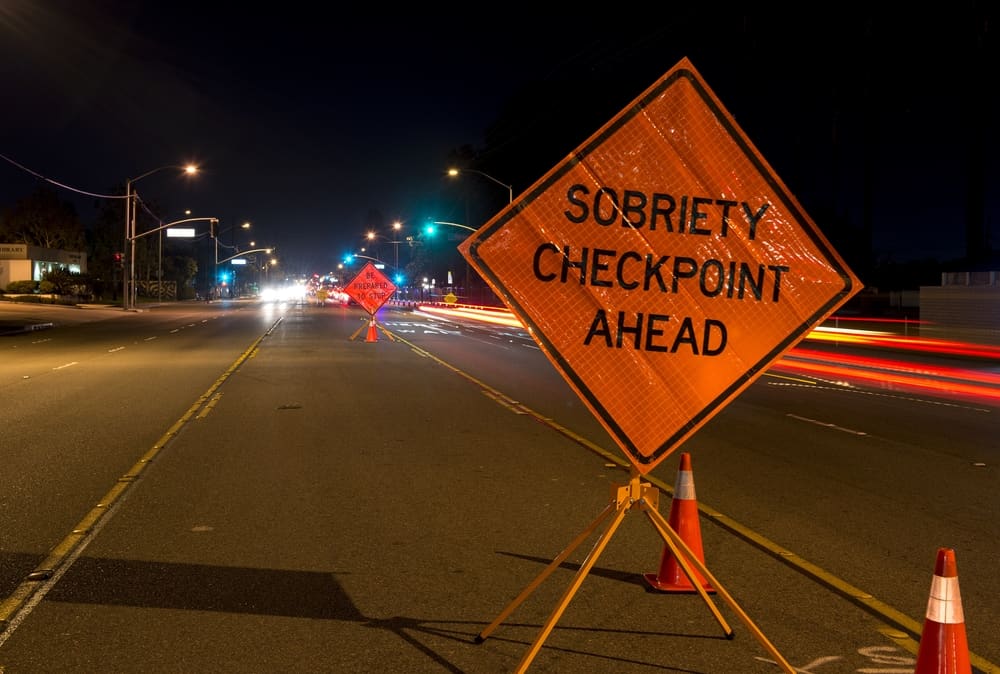This Labor Day is a no refusal weekend in Houston. Labor Day is a high-profile holiday—along with New Year’s Eve, St. Patrick’s Day, July 4th, and Memorial Day— because many people travel to attend parties and events with family and friends that include alcoholic beverages on these days. Dozens of drivers are typically arrested for drunk driving on a high profile holiday in Houston.
You may have seen electronic road sign notices of “No Refusal” or listened to radio announcements about “No Refusal,” or watched TV news stories about “No Refusal.” For all of the advanced communications notice, few Houstonians know what to expect on a No Refusal holiday.
The bottom line regarding “No Refusal” is – don’t drive while intoxicated. Don’t drink and drive. Don’t take any controlled substance or illegal substance and get behind the wheel this Labor Day weekend.
More states are choosing to enact no refusal enforcement policies, so it’s essential for motorists to learn how the law views those who just say no to a police officer’s request to submit to field sobriety tests.
What Happens When a Driver is Pulled Over on Suspicion of Driving While Intoxicated?
Law enforcement officers evaluate the driver’s behavior to determine reasonable suspicion that he or she is driving while intoxicated. Running a red light, speeding, or swerving in traffic is sufficient for the officer to decide to pull a driver over.
A Texas motorist suspected of driving while intoxicated is usually asked to submit to breathalyzer testing to record his or her blood alcohol concentration (BAC). If the result is 0.08 percent or above, this is a positive result that triggers a DWI charge.
If the driver refuses to submit to testing, he or she may face harsh treatment by the officer and an automatic suspension of the driver’s license.
Although American Civil Liberties Union attorneys have criticized no refusal policies in Texas, none of the presented challenges have prevailed in court. ACLU says they believe that no refusal policy violates the motorist’s rights against “unreasonable” search or seizure. It also argues that no refusal policy raises important questions about the individual’s right to medical privacy, especially when additional biologic information is gathered from the blood draw.
The bottom line is that a DWI No Refusal Weekend in Houston simplifies law enforcement’s ability to convict a driver, even if he or she hasn’t done anything wrong. An experienced DWI attorney will challenge known problems often involved in law enforcement-administered field tests.
Breath Tests
Law enforcement officers often ask the driver to submit to a breath test because it’s relatively simple to administer. Data shows these tests are often inaccurate. For example, a diabetic or an individual with a metabolic disorder may appear to be driving while intoxicated even though he or she hasn’t had anything to drink.
A breath test captures air from the driver’s lungs and analyzes it for saturation of alcohol. This evidence is often unreliable because the lungs aren’t the source of alcohol in the breath. “Alcohol breath” flows from the individual’s full respiratory system, not just his or her lungs. In addition, if the officer asks the driver to submit to a breath test but doesn’t preserve the breath sample, the test may be considered invalid later.
Blood Tests
Under former Tex. Transp. Code, an officer could request a warrant to draw the suspected motorist’s blood. He or she was allowed to call a phlebotomist to the site of the arrest, or request transport of the motorist to a nearby facility to get the sample.
In 2014, Texas’s Court of Criminal Appeals found that such requests could not be “justified” under the Fourth Amendment. The U.S. Supreme Court agreed.
As it stands today, a motorist has the right to refuse an officer’s request to take a breath or blood test until the officer obtains a warrant from a judge. Then, the motorist must comply because a judge has mandated that he or she submit to testing.
A blood test is a more accurate measure of evaluating the concentration of alcohol in the driver’s bloodstream. However, a blood test is considerably harder for the officer to obtain or analyze. For that reason, a blood test is less desirable (and certainly less convenient) than the breath test.
In comparison, a blood test enables the arrested person to review the blood test sample later on.
Overcoming a Driver’s Objection to Field Sobriety Testing
In that event a driver suspected of driving while intoxicated refuses to submit to an officer’s request, the officer could overcome his or her objection by obtaining a warrant to obtain his or her blood or breath for testing. Unfortunately, obtaining a warrant takes time and, in the interim, the suspect is likely to “sober up” at an approximate rate of 0.01 percent of BAC/hour. At that point, the suspect’s tests might show a reading of less than 0.08 percent.
Texas’s implied consent laws require the licensed driver to submit to testing. However, a no refusal weekend means the driver shouldn’t refuse the officer’s request. Texas law enforcement is legally authorized to apply force in order to obtain a sample. If the officer contacts an on-call judge and receives an electronic warrant to his or her smartphone or mobile device, the suspected driver could face serious contempt charges.
How to Avoid Arrest on a No Refusal Weekend
Again, the bottom line is to avoid drinking and driving, using medications and driving, or illegal substances and driving. If you’re diabetic, make sure you eat a healthy meal or snack at least 30 minutes before getting behind the wheel.
Check your vehicle before getting behind the wheel. Are your tires properly inflated? Are your lights and turn signals working well?
If you drink an alcoholic beverage at a party, bring a designated driver or get a cab to take you home.
Don’t tempt fate. Avoid getting pulled over. Be clear that law enforcement officers will be watching and waiting to identify potential DWIs on Labor Day weekend—and all high-profile holidays.
Realize that even though law enforcement has given advance notice of this upcoming No Refusal weekend in Texas, a police officer can always get an on-call judge in Houston or Harris County to issue a virtual warrant. With the receipt of the warrant, the arresting officer will ask for transportation to the nearest hospital to draw a blood sample.
Understand that you retain the right to say no to the officer’s demand for a blood or breath specimen. If the officer obtains a search warrant to obtain the sample, you’re required to comply with the demand by law.
If you are arrested and charged with a DWI, contact an experienced DWI attorney as soon as possible. Never argue or challenge the police officer. Remain calm. Show respect, but don’t converse with the arresting officer. Don’t make an admission of guilt.
Contact an Experienced Houston DWI Attorney
A DWI conviction can have lasting serious consequences, including jail time, significant fines, driver’s license suspension, and other special conditions. A DWI charge is part of your permanent record. It can affect where you live or where you work.
An experienced DWI attorney can make a difference in the outcome of your case. Contact The Law Office of Matthew D. Sharp in Houston now to schedule an initial case evaluation.






